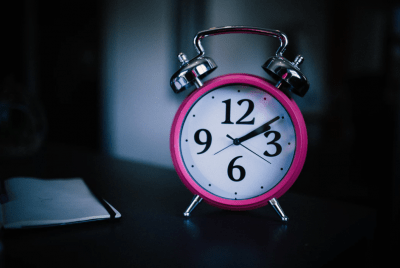If you’ve got a fleet of sleep remedies on your nightstand like, ahem, some of us, listen up: you don’t have to go cold turkey before trying cognitive behavioral therapy for insomnia. According to clinical psychologist and author of The 4-Week Insomnia Workbook Dr. Sara Dittoe Barrett, medications aren’t off-limits when it comes to CBT-I, also known as the most effective insomnia treatment available (think 80-90% success rate — yes, seriously).
Join me as Dr. Barrett and I discuss the truth about sleep hygiene, writing your own insomnia treatment plan, and the folly of chasing slumber.
In June 2019, you published The 4-Week Insomnia Workbook. Who is your target audience? People with occasional trouble sleeping or those with persistent insomnia lasting weeks or months?
The book is intended for anyone struggling with insomnia. Almost everyone has the occasional sleepless night, and when that’s rare, it’s not typically a problem. But consistent trouble sleeping is really impactful. The book addresses the broad range of underlying causes of sleep disturbance and can work whether the insomnia is relatively new or has been going on for years.

You suffered from insomnia as a teenager and a new mother. Was that why you decided to focus on sleep in your practice?
Probably. I think it helps that I know what it’s like to be chronically sleep deprived and how easy it is to become fixated on sleep when you’re not sleeping. I also like working with insomnia because cognitive-behavioral therapy works really well. It’s rewarding to see people get better.
I’ve read that sleep hygiene rarely helps people with chronic insomnia. Is there a role for sleep hygiene in your practice, or is it largely for people who sleep well generally but may have a few bad habits?
I do think that sleep hygiene is very important. I want people to look at their daily habits. Are they drinking too much caffeine and eating too much sugar? Are they exercising enough and at the right time? Are they staring into the blue light of a screen late into the evening? These behaviors can have a big impact on sleep. But it’s also important to understand that in many cases, good sleep hygiene isn’t enough. Sleep is complicated, and often there are multiple factors contributing to insomnia. With chronic insomnia, the brain and body may have become conditioned to not sleep during the night. Cognitive behavioral therapy can help to retrain the brain that the bed, and nighttime, are for sleeping.
Your book is in workbook format. Do you think a workbook is more helpful for people trying to get a handle on insomnia?
I like the workbook format because it offers exercises to help people dig more deeply into the material, do some self-assessment, and make the work more personal and relevant. It provides space for you to write your own treatment plan, and cues you to reflect on what’s working and problem-solve as needed.

In general, do you think medications help or hinder the process of CBT-I?
I think CBT-I can work whether someone is taking a sleep medication or not. Lots of people are already taking sleep medications or herbal sleep aids when they find CBT-I. When I see clients, we’ll often talk about medication and how it’s working or not working. We might also try to identify their thoughts about the medication, and how those thoughts might be impacting sleep. For example, if someone is thinking, “I’ll never be able to sleep without Ambien,” that’s really important to know. We want to be able to target thoughts that could turn into self-fulfilling prophecies.
What do you wish everyone knew about sleep?
Chasing sleep can make it flee. If you have insomnia, practicing acceptance of sleeplessness in the moment is one of the best things you can do. That’s mindfulness, and it’s a big focus of the book. I want people to know that they can do things to make it more likely that sleep will happen, while also practicing some patience and acceptance of the process.
A big thank you to Dr. Barrett for talking with Sleepopolis! Check out her book, or learn more about her at her website and LinkedIn.

